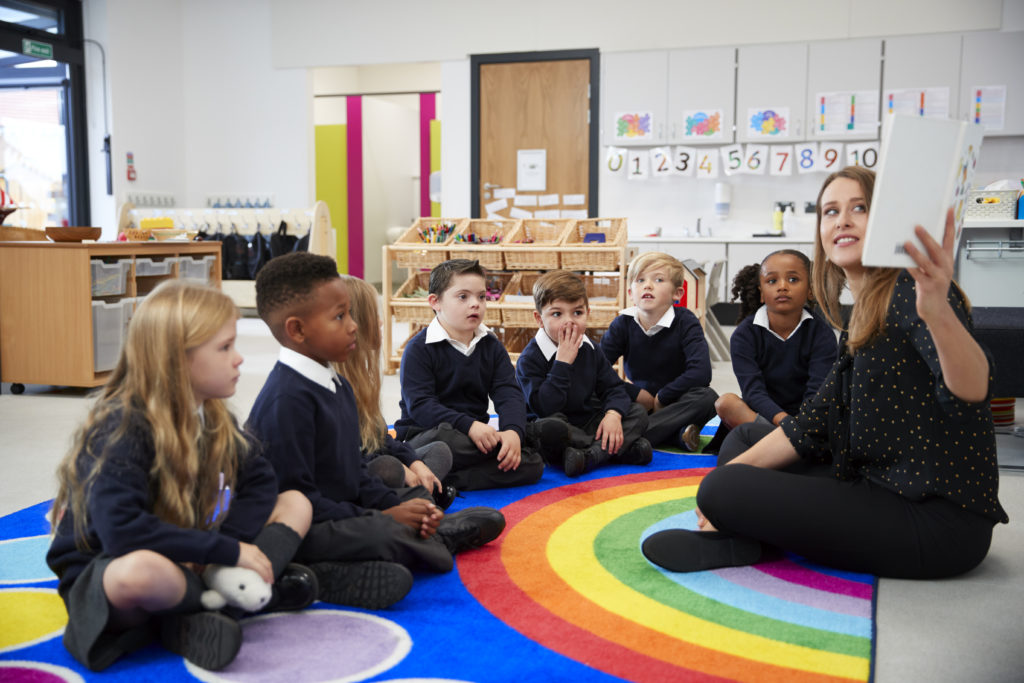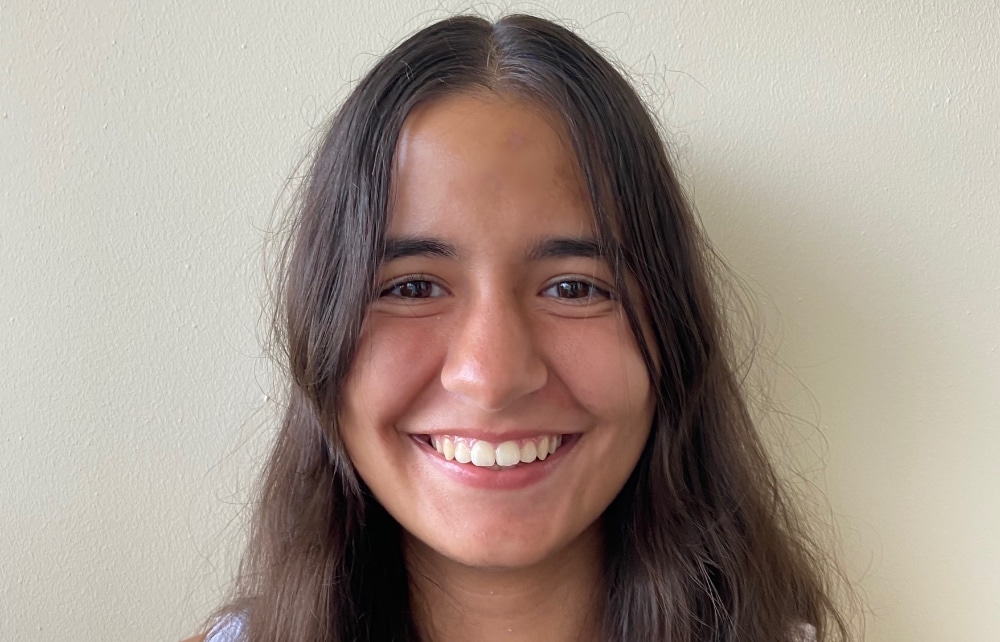Leonor Silva. (Leonor Silva)
Leonor Silva, a young ambassador for LGBT+ charity Just Like Us, writes for PinkNews for the end of Lesbian Visibility Week how vital it is that schools empower – not erase – young queer people.
When I was seven years old, I remember participating with some friends from my class as an extra in a high-school play.
I remember very few things about the play but one thing I remember was thinking that the lead actress was very beautiful. I was really young of course, but that in hindsight, I can see that there were signs I was also going to be who I am today.
Now I proudly identify as a lesbian. And let me tell you, it hasn’t been the simplest of journeys.
I’m lucky to have friends that support me and a community that makes me feel at home but it hasn’t always been this way.
Throughout primary and secondary school, I’ve always felt that my identity was somehow “erased” – nobody talked about it (except for the occasional use of the word as an insult), therefore it didn’t exist.
Now that I live fully embracing my sexuality, it’s hard looking back and seeing that “empty space” in my life growing up.
My journey to coming out is one that is still very recent. Although I’ve known how I identify for years, I only told my friends last year. I finally felt ready and it’s a decision I’m happy I made.
It’s very important to know that it’s okay if you haven’t figured everything out and that is part of your journey.

I still haven’t had the conversation with my parents but I’m a happy adult who is surrounded by spectacular friends and a wonderful community.
Now and then I ask my friends who went to different schools if being LGBT+ was ever brought up and their answer isn’t only a “No”.
It’s a “No” that carries the weight of: “Obviously no, of course not”.
For some of us, it seems so unimaginable that being LGBT+ could be something normally talked about in schools, that we don’t even begin to consider the immense benefits School Diversity Week could have had on LGBT+ pupils and normalising queerness for allies.
Coming to terms with being a lesbian was a journey I had to do solely on my own, but School Diversity Week would have certainly helped me feel less alone in that journey.
It would have made it clear that school is a safe, welcoming place where I could be myself and get on with learning without fears of being wrong or judged.
And the numbers reflect just that – according to Just Like Us research, the pandemic has only aggravated existing feelings of loneliness, as 52 per cent of LGBT+ young people are feeling lonely on a daily basis, compared to 27 per cent of non-LGBT+ young people.
Eighty-seven per cent of young lesbians have felt lonely and isolated from those they are closest to, while 46 per cent of gay boys, 54 per cent of bisexual people and 52 per cent of young transgender people have felt the same daily.
Something like School Diversity Week could bring much-needed change and even an end to this struggle many LGBT+ young people go through.
The experiences we have growing up and the rejection we go through can have such long-lasting effects, so schools can play a really positive role.
These days, I have the courage to be the role model I wish I had when I was growing up. I love being a Just Like Us ambassador, which means I speak in secondary schools and have the opportunity to help young people who might be struggling as I did.
